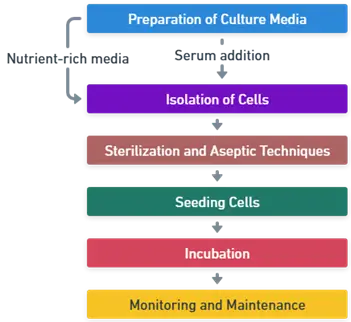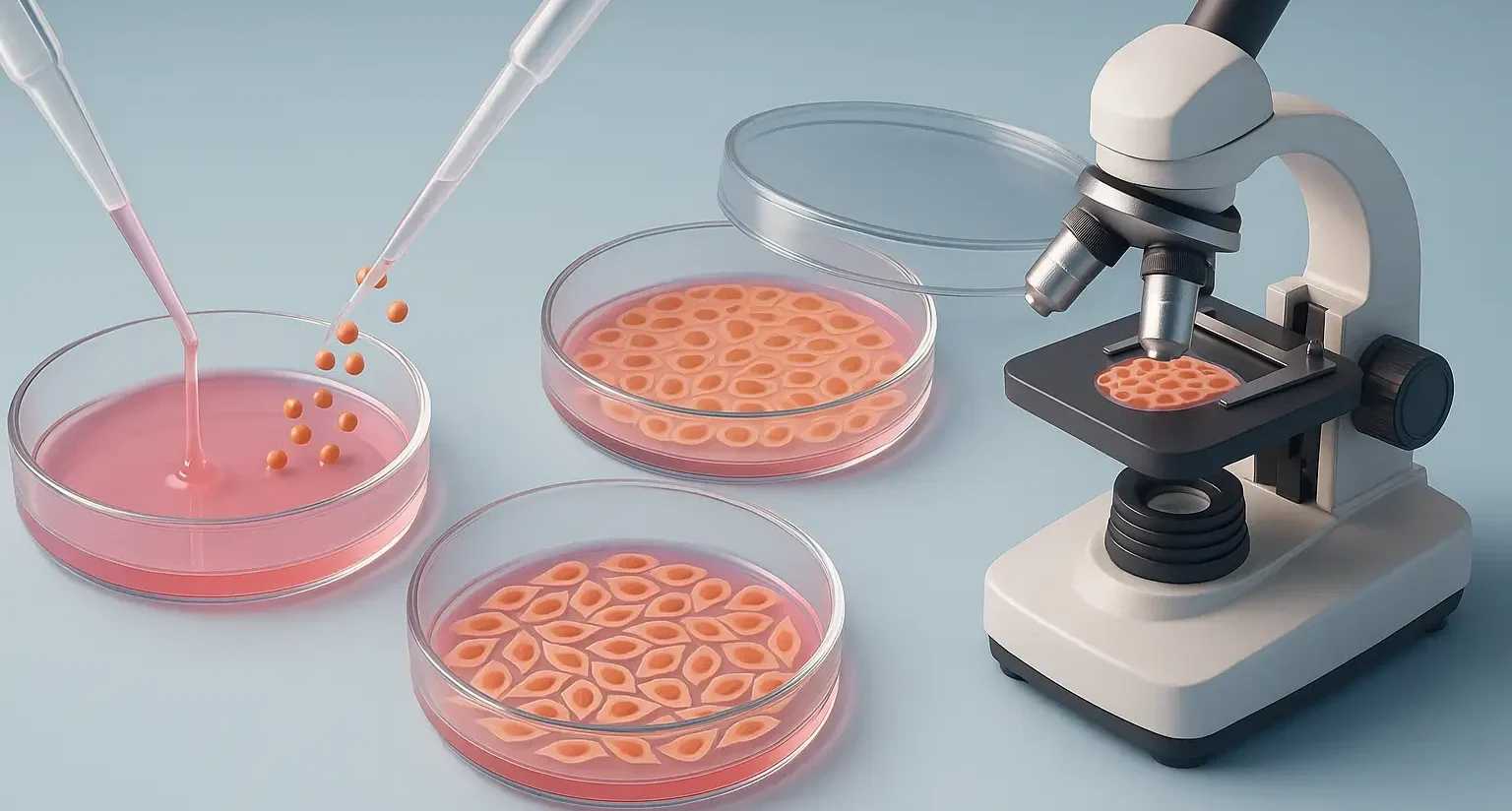- Growth of Animal cells in Culture involves growing animal cells outside their natural environment under controlled laboratory conditions.
- This process allows for the study of cell biology, physiology, and biochemistry in a controlled setting, facilitating research and development in various biomedical fields.
General Procedure for Growth of Animal Cells in Culture

1. Preparation of Culture Media:
- Nutrient-rich media are prepared, containing essential amino acids, vitamins, minerals, glucose, and growth factors.
- Serum (like fetal bovine serum) may be added to provide additional growth factors.
2. Sterilization and Aseptic Techniques:
- All equipment and media are sterilized to prevent contamination.
- Work is conducted in a laminar flow hood to maintain a sterile environment.
3. Isolation of Cells:
- From Tissue: Cells are isolated from animal tissues using enzymatic digestion (e.g., with trypsin or collagenase) to separate cells.
- From Established Lines: Cells are obtained from existing cell lines stored in repositories.
Advertisements
4. Seeding Cells:
- The isolated cells are placed into culture vessels (flasks, dishes) containing the prepared media.
5. Incubation:
- Cultures are incubated at optimal conditions (typically 37°C with 5
6. Monitoring and Maintenance:
- Regular observation under a microscope to assess cell health and confluency.
- Periodic media changes to supply fresh nutrients and remove waste products.
7. Subculturing (Passaging):
- When cells reach sufficient growth (confluency), they are transferred to new vessels to continue proliferation.
Types of Cell Cultures

-
Primary Cell Cultures:
- Derived directly from animal tissues.
- Have a limited lifespan (finite number of divisions).
- Closely resemble the physiological state of cells in the body.
- Applications: Studying normal cell functions, drug metabolism, and toxicology.
Advertisements -
Established (Continuous) Cell Lines:
- Cells that have adapted to in vitro conditions and can proliferate indefinitely.
- May have undergone genetic changes to become immortalized.
- Examples: HeLa cells, HEK 293 cells.
- Applications: Large-scale studies, vaccine production, recombinant protein expression.
-
Transformed Cell Cultures:
- Cells that have been genetically altered to exhibit uncontrolled growth (similar to cancer cells).
- Often used to study cancer mechanisms and test anti-cancer drugs.
- Characteristics: Loss of contact inhibition, anchorage-independent growth.
Advertisements


